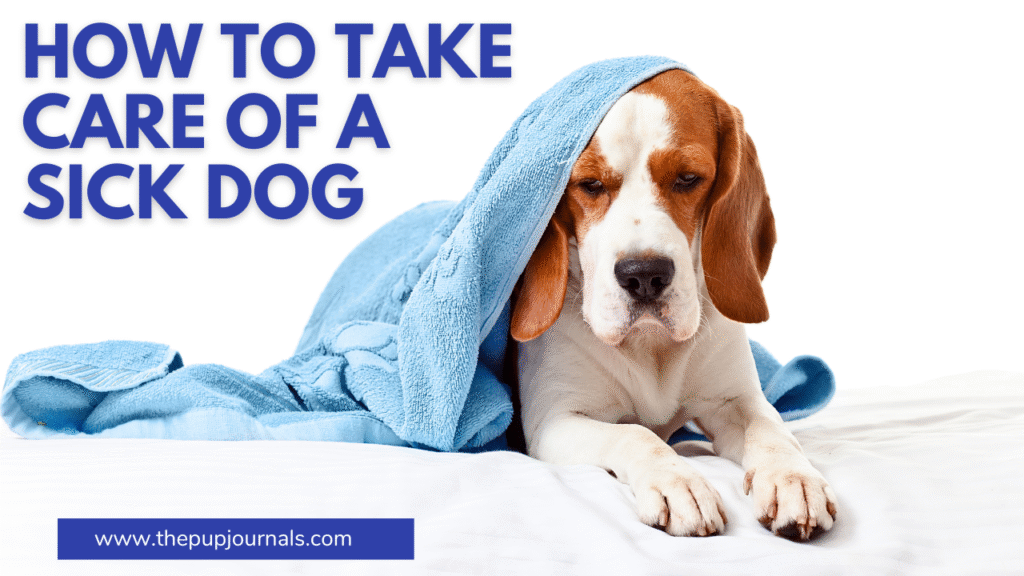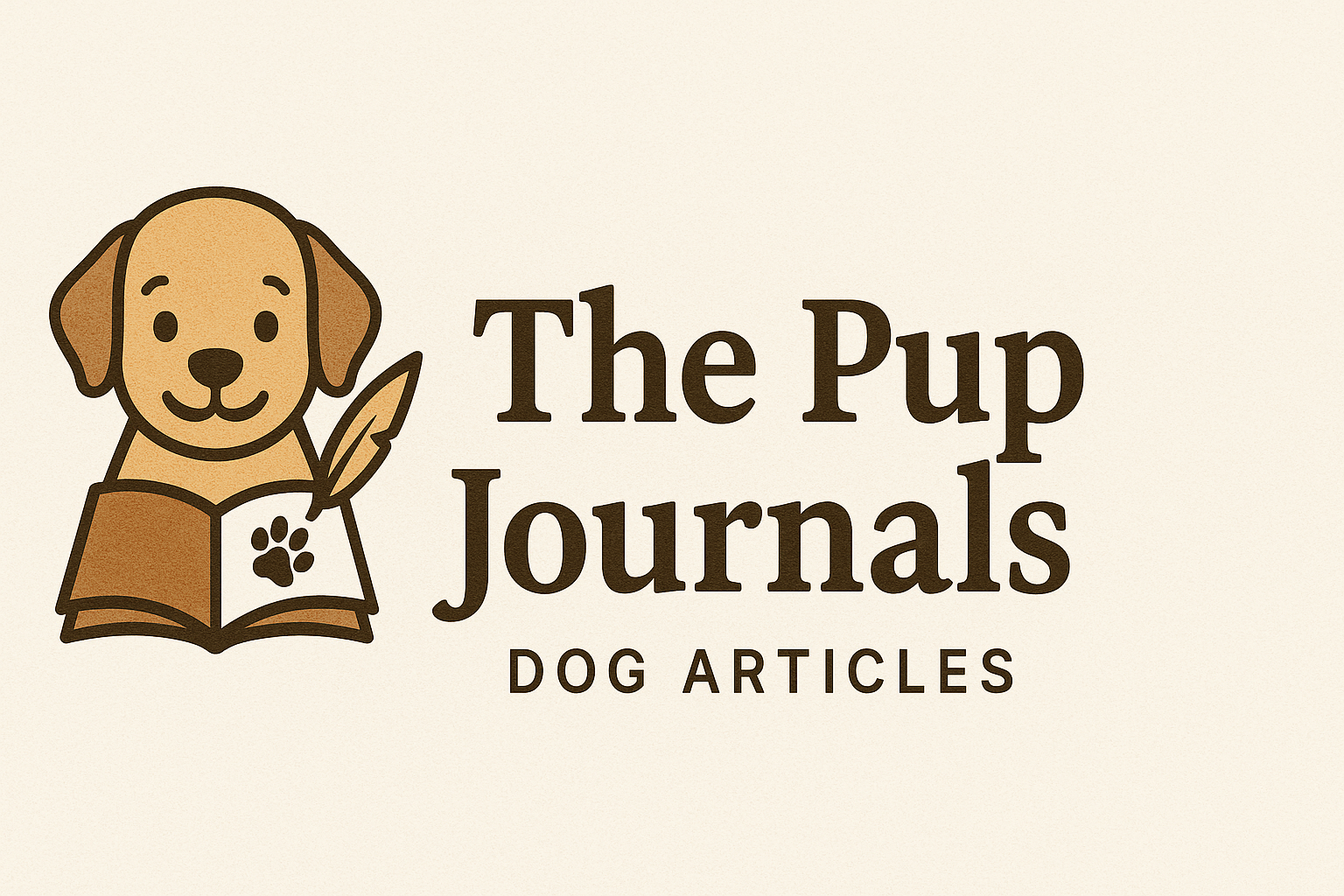
Introduction
When your dog is sick, it can be scary and stressful. You want to help, but you may not know how. This guide explains how to care for a sick dog in simple, clear steps.
We use easy language and short sentences. You’ll find helpful tips that work in real life. Whether your dog has a cold or something more serious, this article gives you the support you need.
Let’s explore how to comfort, treat, and protect your sick dog with love and care.
Spotting the Signs That Your Dog Is Sick
You know your dog best. If something feels off, trust your gut. Here are common signs your dog is sick:
- Loss of appetite or refusing food
- Vomiting or diarrhea
- Lethargy or low energy
- Coughing or sneezing
- Shaking or trembling
- Whining or unusual behavior
- Fever or warm ears and nose
- Trouble breathing or walking
If your dog shows any of these signs, call your vet. Early action helps prevent serious problems.
Visit the Vet First
When your dog is sick, don’t guess the problem. Take your dog to the vet right away. The vet checks symptoms and runs tests.
They may prescribe medicine or suggest a treatment plan. Follow their advice closely. Ask questions if you don’t understand something.
Keep a copy of your dog’s medical records. This helps track progress and future care.
Create a Quiet and Comfortable Space
A sick dog needs rest. Set up a quiet spot away from noise and other pets. Use a soft bed or blanket.
Keep the area clean and warm. Avoid drafts or cold floors. Your dog will heal faster in a peaceful space.
Limit visitors and loud sounds. Calm surroundings help reduce stress and support recovery.
Keep Your Sick Dog Hydrated
Water is key when your dog is sick. Dehydration makes symptoms worse. Offer fresh water every few hours.
If your dog won’t drink, try ice cubes or chicken broth. Use a syringe if needed, but ask your vet first.
Watch for signs of dehydration like dry gums or sunken eyes. Call your vet if you notice these signs.
Feed a Gentle and Nutritious Diet
When your dog is sick, food should be easy to digest. Offer bland meals like boiled chicken and rice.
Avoid fatty or spicy foods. Stick to vet-approved diets. Feed small portions throughout the day.
If your dog refuses food, don’t force it. Try warming the food slightly to boost smell and taste.
Give Medicine as Directed
If your vet gives medicine, follow the instructions exactly. Don’t skip doses or stop early. Use a pill pocket or mix with food.
Watch for side effects like vomiting or itching. Call your vet if anything seems wrong. Never give human medicine to dogs.
Store medicine in a safe place away from kids and pets.
Monitor Your Dog’s Symptoms Daily
Keep a journal of your dog’s symptoms. Write down changes in appetite, energy, and bathroom habits. This helps your vet adjust treatment.
Take your dog’s temperature if needed. Normal dog temperature is between 101°F and 102.5°F. Use a pet thermometer for accuracy.
Share updates with your vet during follow-up visits.
Help Your Dog Rest and Sleep
Rest is vital when your dog is sick. Limit playtime and walks. Let your dog sleep as much as needed.
Avoid rough handling or loud noises. Speak softly and move gently around your dog. Respect their space and mood.
Rest helps the body heal faster and reduces stress.
Keep Your Sick Dog Clean
Clean your dog gently if they vomit or have diarrhea. Use a damp cloth and mild pet-safe soap. Avoid full baths unless needed.
Wash bedding and blankets often. Use unscented detergent to avoid skin irritation. Keep the area fresh and odor-free.
Clean food and water bowls daily to prevent germs.
Watch for Signs of Pain
A sick dog may hide pain. Look for signs like limping, whining, or avoiding touch. Dogs may also lick sore spots.
If you think your dog is in pain, call your vet. They may suggest pain relief or further tests. Never give pain meds without vet approval.
Comfort your dog with gentle touch and calm words.
Limit Contact with Other Pets
If your dog is sick, keep them away from other pets. Some illnesses spread easily. Use separate bowls and bedding.
Wash your hands after handling your sick dog. Clean shared spaces with pet-safe disinfectant. Monitor other pets for symptoms.
Isolation helps protect your whole household.
Support Your Dog Emotionally
Dogs feel emotions like fear and sadness. When your dog is sick, they may feel anxious. Stay close and offer comfort.
Speak in a calm voice and pet them gently. Sit beside them during rest. Your presence helps them feel safe.
Avoid scolding or loud commands. Patience and love go a long way.
Follow Up with Your Vet
After the first visit, schedule follow-up appointments. Your vet checks progress and adjusts treatment. Bring your symptom journal to each visit.
Ask about long-term care or diet changes. Discuss vaccines and future prevention. Stay informed and involved in your dog’s health.
Prevent Future Illness
Once your dog recovers, focus on prevention. Keep vaccines up to date. Use flea, tick, and heartworm protection.
Feed a balanced diet and offer daily exercise. Schedule regular vet checkups. Clean your dog’s space often.
Healthy habits reduce the risk of future sickness.
Know When It’s an Emergency
Some symptoms need urgent care. Call your vet or emergency clinic if you see:
- Trouble breathing
- Seizures or collapse
- Bloody vomit or stool
- High fever
- Sudden weakness
Don’t wait. Fast action can save your dog’s life.
Caring for a Senior Sick Dog
Older dogs need extra care when sick. Their bodies heal slower and may need special diets. Watch for arthritis or organ issues.
Offer soft bedding and easy access to food and water. Keep walks short and gentle. Talk to your vet about senior care plans.
Help Your Dog Recover Fully
Recovery takes time. Be patient and consistent. Stick to the vet’s plan and monitor progress. Offer love and support daily.
Celebrate small wins like eating or walking again. Keep routines simple and calm. Your dog will feel better with your care.
Conclusion
When your dog is sick, your care makes all the difference. Follow these steps to comfort and heal your furry friend. From vet visits to gentle meals, every action helps.
Stay calm, stay informed, and stay close. Your dog depends on you. With love and care, your sick dog can recover and thrive again.
Read More: How to Care for a Blind Dog – 10 Best Tips

